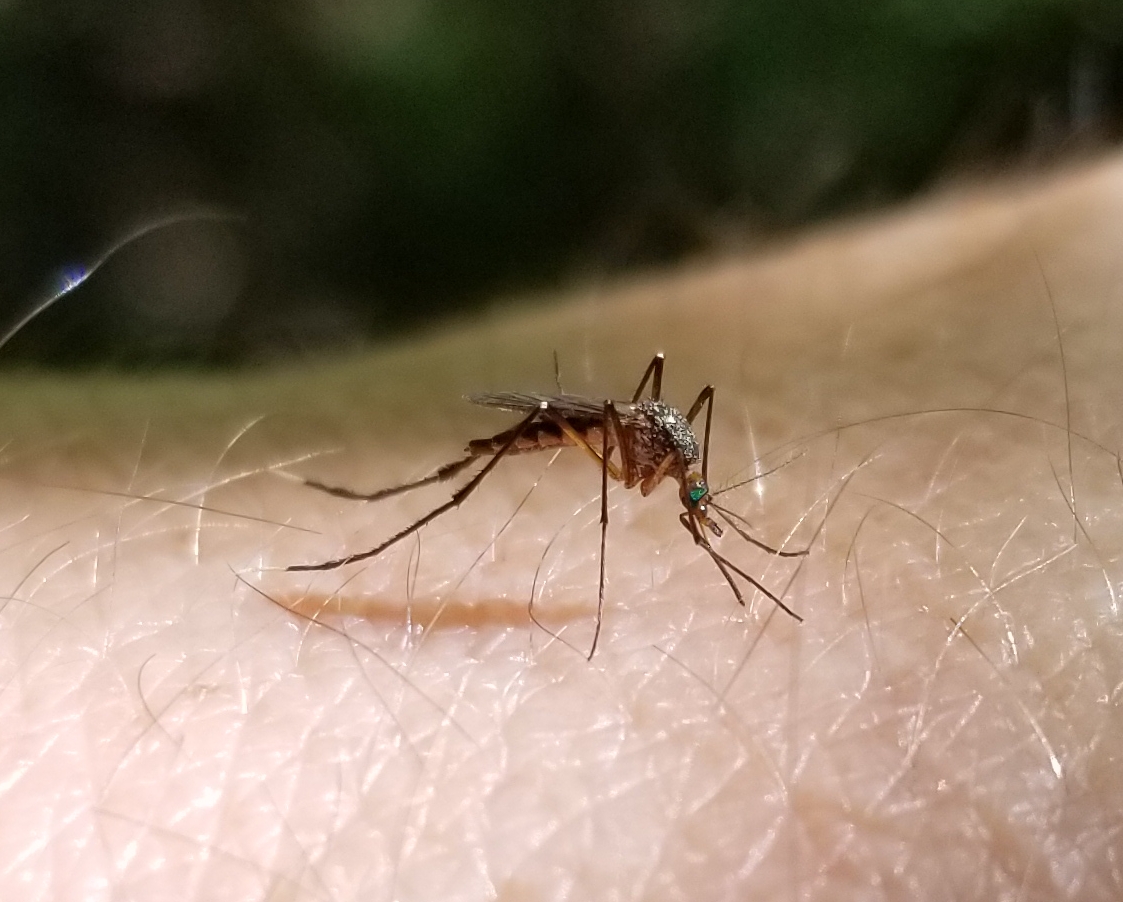
Citrus County — The Florida Department of Health in Citrus County (DOH-Citrus) today advised residents there has been an increase in mosquito-borne disease activity in areas of Citrus County.
Several sentinel chickens have tested positive for Eastern Equine Encephalitis (EEE) virus infection. The risk of transmission to humans has increased. Citrus County Mosquito Control District and DOH-Citrus continue surveillance and prevention efforts.
DOH-Citrus reminds residents and visitors to avoid being bitten by mosquitoes and to take basic precautions to help limit exposure.
What are the symptoms of eastern equine encephalitis and when do they appear?
It is possible that some people who are infected with EEEV will not develop any symptoms. Symptoms of EEEV infection typically appear 4-10 days after being bitten by an infected mosquito.
The type of symptoms usually depends on the age of the person. People over age 50 and younger than age 15 are at the greatest risk for developing severe disease. Severe cases of EEE infection begin with the sudden onset of headache, high fever, chills, and vomiting that may progress into disorientation, seizures, encephalitis (inflammation of the brain), and coma. Approximately a third of patients who develop EEE die, and many of those who survive have mild to severe brain damage.
What is the treatment for eastern equine encephalitis?
There is no specific treatment for EEE. Treatment focuses on supportive therapy, including hospitalization, respiratory support, intravenous fluids, and prevention of other infections.
To protect yourself from mosquitoes, you should remember to “Drain and Cover”:
- Drain standing water to stop mosquitoes from multiplying.
- Drain water from garbage cans, house gutters, buckets, pool covers, coolers, toys, flowerpots, or any other containers where sprinkler or rainwater has collected.
- Discard old tires, drums, bottles, cans, pots and pans, broken appliances, and other items that aren’t being used.
- Empty and clean birdbaths and pet’s water bowls at least once or twice a week.
Protect boats and vehicles from rain with tarps that don’t accumulate water. - Maintain swimming pools in good condition and appropriately chlorinated. Empty plastic swimming pools when not in use.
Cover skin with clothing or repellent
Clothing – Wear shoes, socks, and long pants and long sleeves. This type of protection may be necessary for people who must work in areas where mosquitoes are present.
Repellent – Apply mosquito repellent to bare skin and clothing.
Always use repellents according to the label. Repellents with DEET, picaridin, oil of lemon eucalyptus, para-menthane-diol, 2-undecanone and IR3535 are effective.
Use mosquito netting to protect children younger than 2 months old.
Tips on Repellent Use
Always read label directions carefully for the approved usage before you apply a repellent. Some repellents are not suitable for children.
Products with concentrations of up to 30 percent DEET (N, N-diethyl-m-toluamide) are generally recommended. Other U.S. Environmental Protection Agency-approved repellents contain picaridin, oil of lemon eucalyptus, para-menthane-diol, 2-undecanone or IR3535. These products are generally available at local pharmacies. Look for active ingredients to be listed on the product label.
Apply insect repellent to exposed skin, or onto clothing, but not under clothing.
In protecting children, read label instructions to be sure the repellent is age-appropriate.
According to the Centers for Disease Control and Prevention (CDC), mosquito repellents containing oil of lemon eucalyptus or para-menthane-diol should not be used on children under the age of three years. DEET is not recommended for children younger than two months old.
Avoid applying repellents to the hands of children. Adults should apply repellent first to their own hands and then transfer it to the child’s skin and clothing.
If additional protection is necessary, apply a permethrin repellent directly to your clothing. Again, always follow the manufacturer’s directions.
Cover doors and windows with screens to keep mosquitoes out of your house.
Repair broken screening on windows, doors, porches, and patios.

